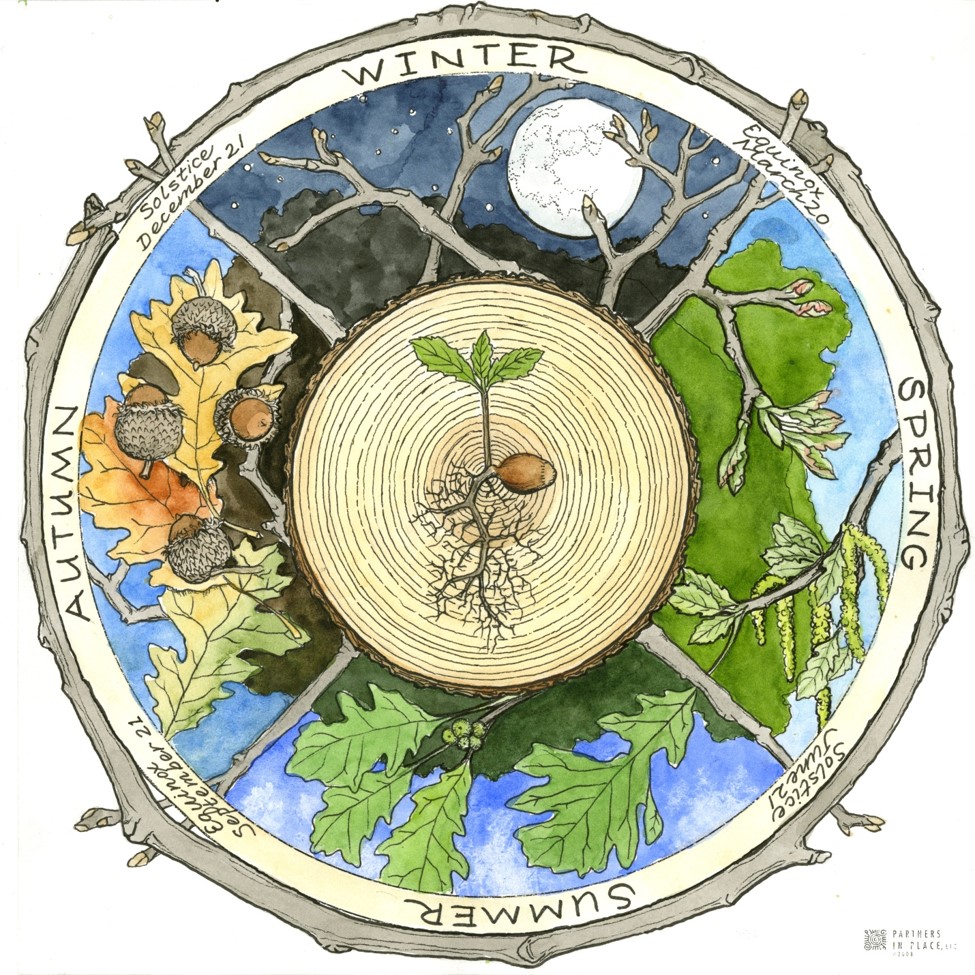We are nearing the time of year when animals start to pursue their annual cycles that we are more or less familiar with. Birds will start migrating south for the winter. Bears will stock up on food to last them through the winter. Flowers will start preparing to shed their seeds so that their offspring have the best chance come the following spring. However, these cycles have not escaped the jaws of rapid climate change. On the contrary, they are rather dependent on them.
There’s a field of scientists who observe the effects of a changing climate on natural cycles and rhythms of plants/animals. These scientists are called phenologists. In fact, some of the best indicators of climate change are how the plants and animals are responding. This is largely due to the fact that organisms are so sensitive to the world around them, and depend on environmental cues to know when to migrate, eat, reproduce, etc.
One of the best examples is the European pied flycatcher. This small bird has been used to study migration for years, and is one of the easiest birds to use to identify migration trends and how they could be tied into climate change. Over the past couple decades, these birds have been leaving their winter homes earlier in response to greater rainfall (which is in turn a consequence of a warming earth). Originally, it was thought that birds were rather inflexible when they decided to head back home. However, studies1 show that birds can and do respond to climate change, at least initially, but there are so many environmental restraints along the way that they cannot respond adequately enough. For example, a problem posed to these birds is that the insects they are expecting to find back home have also left early. In this case, both species are responding to climate change in some fashion, but their phenological cycles are shifting at different rates.
What does that even mean? It means that the insects aren’t there when the birds need them to be. This is a drastic blow to the success of the flycatcher chicks, who depend on those bugs when they hatch the following spring.
This is definitely not the only example of climate change negatively impacting wildlife, but it surely exemplifies the fact that there are so many consequences that are not as apparent as others, but equally important.
At the end of the day, do what you can to help the environment and the wildlife within it. Call your representatives. Join organizations. And most importantly, keep learning!
Resource:
Christiaan Both,Flexibility of Timing of Avian Migration to Climate Change Masked by Environmental Constraints En Route, Current Biology, Volume 20, Issue 3, 2010, Pages 243-248, ISSN 0960-9822, https://doi.org/10.1016/j.cub.2009.11.074.(http://www.sciencedirect.com/science/article/pii/S0960982209022179)
Image source:
https://dyckarboretum.org/tag/phenology-wheel/



You got a very superb website, Glad I noticed it through yahoo. Blanche Markus Alper
I am not sure where you are getting your information, but great topic. Christiane Lothaire Tadashi Marie Stillmann Gracie
pwede din po bang paki send sakin yung reviewer for cse pro paki send nalng din po sa email ko thanks. Edwina Clement Lantz
Great blog here! Also your web site loads up fast! What web host are you using? Can I get your affiliate link to your host? I wish my site loaded up as fast as yours lol Filia Welsh Lawry
Absolutely not. I love a good margarita just please use 100% agave tequila and fresh juice! Jany Grady Kery
This is my first time pay a quick visit at here and i am in fact pleassant to read everthing at single place. Aila Burty Koosis
Highly energetic post, I loved that bit. Will there be a part 2?
You actually make it seem so easy with your presentation but I find this
matter to be really something which I think I
would never understand. It seems too complicated and very broad for me.
I am looking forward for your next post, I’ll try to get the hang of it!
Hello! I could have sworn I’ve visited this website before but after browsing through some of the posts I realized
it’s new to me. Anyhow, I’m definitely delighted I came
across it and I’ll be book-marking it and checking back regularly!
https://ofcoffeeroast.blogspot.com/
https://theappliancenet.blogspot.com/2021/04/parts-for-bunn-coffee-maker.html
https://greencoffeeguide.blogspot.com/2021/04/bunn-coffee-maker-filter-basket.html
https://theamericanocoffee.blogspot.com/2021/04/bunn-axiom-coffee-maker-manual.html
https://ofcoffeetips.tumblr.com/post/647834964999716864/bunn-coffee-maker-u3
http://manuelkukp62737.bleepblogs.com/5067062/bunn-coffee-makers-best-buy
https://playing-dart.tumblr.com/
https://helicopter-hog-hunting.blogspot.com/2021/03/3-ways-to-train-guard-dog.html
https://ofdogweb.blogspot.com/
https://ofdogweb.blogspot.com/2021/03/10-best-german-shepherd-puppy-training.html
Feel free to surf to my web-site; bad boy mz magnum 54 reviews